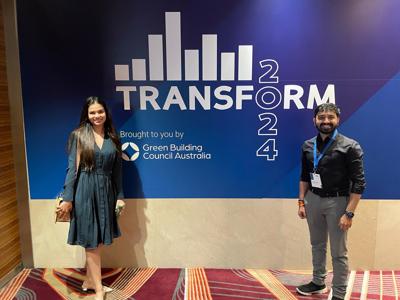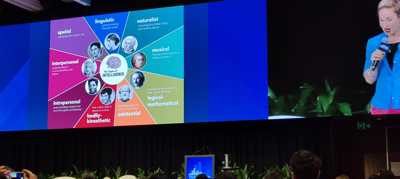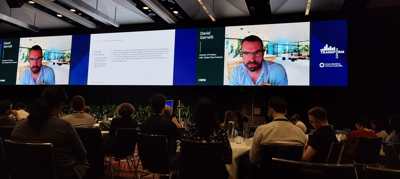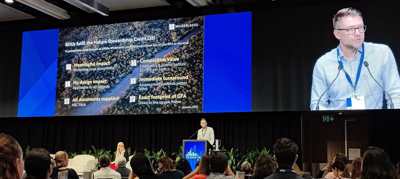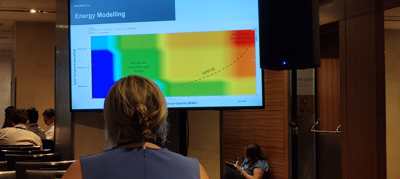GBCA TRANSFORM 2024 Conference
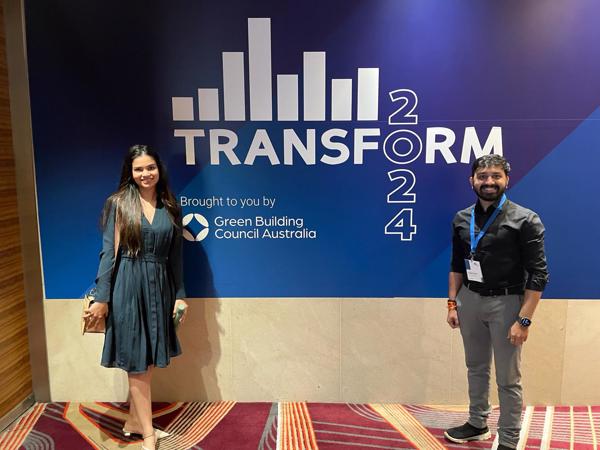
The GBCA TRANSFORM 2024 Conference was held at the Hilton Sydney, where the leading experts congregated to discuss an array of significantly concerning matters to the built environment. Two of our SUSTAIN team members, Shreya Abhang and Suyash Parikh, attended the conference and have wrapped up the main themes and discussion points.
As the name ‘TRANSFORM’ suggests, the conference enlightened us with the on-going transformations in the field of sustainability at a global scale and expanded our vision and exposure to various initiatives and practices evolving at a global scale to fight climate change and its related consequences.
Day one of the conference started with understanding the ‘Nature-related Financial Disclosures’, presented by Tony Goldner, Executive Director of the TNFD, which outlined what the future looks like in the property sector. It focused on the ability for nature to provide ecosystem services is under incredible stress by breaching six out of nine planetary boundaries and that is why we need to start thinking about nature as a ‘risk management issue’.
This creates a transformational opportunity for entrepreneurs, businesses and investors to create and scale opportunities to new bio-based materials, products and business models into a circular economy.
In continuation from that, a new vision to look at future civilisation was unlocked by the keynote from a partner at EY, Oceania Alexandra Banks, which gave a strong implication that the future built environment will continue to grow with globalisation, but we need to transform our relationship that we have with nature. We need to move towards a more regenerative model based on ‘a nature-positive economy’ where we aim to live in harmony with nature.
The conference continued with a panel discussion with Nicole Lockwood, who currently chairs the Airbridge Company in WA, on the topic ‘Decarbonisation’; a topic closely relatable to the immediate needs of the built environment industry. This panel discussion focused on the ‘cost-first’ mindset that dominates the current industry. It focuses on how we make money out of technology of capturing and utilising carbon emissions and the role of government and its policies that would make these sorts of changes palatable in the mainstream market, opening the doors to new transformations and opportunities.
Day one concluded with panel discussion on “How do we do it better with what we have – focusing on existing buildings and retrofits” guided by Built CEO Brett Mason, which highlighted that retrofitting can be a great opportunity to reduce emissions and maximise existing assets, especially in the commercial sector of the built environment.
Day two started with unlocking the understanding of the world-leading ‘Vienna housing model’ that explored the various links between housing as a mass concept and health, education, social cohesion and equity in a world where housing supply and affordability are pressure points for both governments as well as the population.
It was exciting to witness the relationship between the built environment and nature through a presentation by First Nations design specialist Rowena Welsh-Jarrett, which showed how we have tried to impose the built environment on nature and locked it up instead of connecting to nature. We are not here to conquer the environment.
The day continued with few more panel discussions on ‘Making the right choices when it comes to nature-based solutions’, ‘Doughnut Economies and the New Normal’, and ‘Sustainable Workplaces – supported by machine learning and generative AI’ which was one of the most interesting topics.
There were few breakout sessions that we attended to enhance and polish our knowledge such as ‘Responsible products and supply chains’ and ‘Critical Steps for Resilience’. These were very helpful as these are going to be a part of the transforming Green Star rating tool – “Green Star Buildings”.
Day two concluded with a very inspiring and fun keynote by Nik and Harry Robinson, founders of Good Citizens Eyewear, which was an inspiring story on why there is no age limit to start contributing to a better future. Failures can’t stop you from transforming the world, if you learn from your failures.
The experience at GBCA’s TRANSFORM 2024 conference literally transformed and widened our vision of looking at the built environment at a global scale by introducing us to new challenges, new ideations, innovations and transformations that are taking place around the world.
Latest News, Resources & Media

Building a Better Proposal: What Sets Winning Bids Apart

Building-Integrated Photovoltaics

2025 Biophilic Design Awards

Circular Transition Indicators for the Built Environment

ClarkeHopkinsClarke’s Sustainability Series

RMIT Guest Lecture


